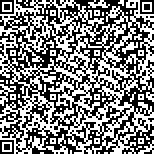| 本文已被:浏览 194次 下载 107次 |

码上扫一扫! |
|
|
| 肾炎防衰液对硫酸苯酯诱导小鼠肾足细胞损伤及自噬作用机制研究 |
|
张婧1,2, 马雷雷1,2, 杨思齐1,2, 韩玉3, 赵晰1,2, 王耀光1,2
|
|
1.天津中医药大学第一附属医院, 天津 300381;2.国家中医针灸临床医学研究中心, 天津 300381;3.天津市中医药研究院附属医院, 天津 300120
|
|
| 摘要: |
| [目的] 观察肾炎防衰液对硫酸苯酯(PS)诱导的小鼠肾脏足细胞损伤及自噬相关蛋白表达的影响,探讨其对足细胞损伤及自噬的干预作用。[方法] 选取SD大鼠,分别灌胃肾炎防衰液及缬沙坦水溶液,制备低、中、高浓度含药血清及西药对照血清。体外培养足细胞,分为空白对照组(Con)组、PS刺激(PS)组、肾炎防衰液低、中、高浓度治疗组(SYFS-L、SYFS-M、SYFS-H)、缬沙坦(XST)组。细胞活力检测(CCK-8)法筛选最合适的PS干预浓度及含药血清给药浓度,实时荧光定量逆转录聚合酶链式反应(qRT-PCR)及蛋白免疫印迹(Western Blot)检测Podocin、CD2AP、BNIP3、p62、LC3Ⅱ/Ⅰ mRNA和蛋白表达。[结果] CCK-8法检测细胞增殖率确定了190 μmol/L浓度的PS处理足细胞24 h作为本实验的造模方法。与Con组比较,PS组CD2AP、Podocin、BNIP3、LC3Ⅱ/Ⅰ蛋白及mRNA表达显著下调,p62蛋白及mRNA表达显著上调;与PS组比较,肾炎防衰液给药组可明显上调CD2AP、Podocin、BNIP3、LC3 mRNA和蛋白的表达,降低p62的表达,且优于缬沙坦组。[结论] PS可能通过抑制足细胞线粒体自噬造成足细胞损伤,而肾炎防衰液通过上调LC3、BNIP3,下调p62蛋白表达,增强细胞自噬,抑制细胞凋亡,改善足细胞损伤。 |
| 关键词: 肾炎防衰液 硫酸苯酯 MPC5足细胞 自噬 |
| DOI:10.11656/j.issn.1672-1519.2024.06.16 |
| 分类号:R587.1 |
| 基金项目:国家自然科学基金青年项目(82004316);天津市研究生科研创新项目(2022BKY193);天津中医药大学研究生科研创新项目(YJSKC-20221013);国家中医药管理局:王耀光全国名老中医药专家传承工作室(978022);天津市卫生健康委员会:中医药事业传承与发展:王耀光天津市名中医传承工作室(883022);院级课题:基于深度学习的智能中医诊疗系统研究(63185021)。 |
|
| Study on the mechanism of Shenyan Fangshuai Formula on induction mouse kidney podocytes injury and autophagy by phenyl sulfate |
|
ZHANG Jing1,2, MA Leilei1,2, YANG Siqi1,2, HAN Yu3, ZHAO Xi1,2, WANG Yaoguang1,2
|
|
1.The First Affiliated Hospital of Tianjin University of Traditional Chinese Medicine, Tianjin 300381, China;2.National Clinical Medical Research Center of Acupuncture and Moxibustion, Tianjin 300381, China;3.The Affiliated Hospital of Tianjin Research Institute of Traditional Chinese Medicine, Tianjin 300120, China
|
| Abstract: |
| [Objective] To observe the effect of Shenyan Fangshuai Formula on phenyl sulfate(PS)-induced mouse kidney podocyte injury and autophagy-related protein expression,and to explore its intervention effect on podocyte injury and autophagy. [Methods] We selected SD rats and gavaged Shenyan Fangshuai Formula and valsartan aqueous solution to prepare low,medium and high concentration drug-containing serum and western control serum,respectively. Podocytes were cultured in vitro and divided into normal control(Con) group,PS stimulation(PS) group,Shenyan Fangshuai Formula low,medium,and high three concentration treatment groups(SYFS-L,SYFS-M,and SYFS-H),and valsartan treatment(XST) group. The CCK-8 method screened the most appropriate intervention concentration and administration concentration of medicated serum. qRT-PCR and Western blot were used to detect Podocin,CD2AP,BNIP3,p62,and LC3Ⅱ/Ⅰ mRNA and protein expression. [Results] CCK-8 method to detect the cellular value-added rate identified 190 μmol/L concentration of PS to treat the podocytes for 24h as the modeling method for this experiment. Compared with the Con group,CD2AP,Podocin,BNIP3,LC3Ⅱ/Ⅰ protein and mRNA expression were significantly down-regulated and p62 protein and mRNA expression were significantly up-regulated in the PS group. Compared with the PS group,the Shenyan Fangshuai Formula group could significantly promote the expression of CD2AP,Podocin,BNIP3,LC3 mRNA and protein,and reduce the expression of p62,and it was better than that in the valsartan group. [Conclusion] Phenyl sulfate may cause podocyte injury by inhibiting podocyte mitochondrial autophagy,while Shenyan Fangshuai Formula ameliorates podocyte injury by up-regulating LC3,BNIP3,and down-regulating p62 protein expression,enhancing cellular autophagy,and inhibiting apoptosis. |
| Key words: Shenyan Fangshuai Formula phenyl sulfate MPC5 podocyte autophagy |
